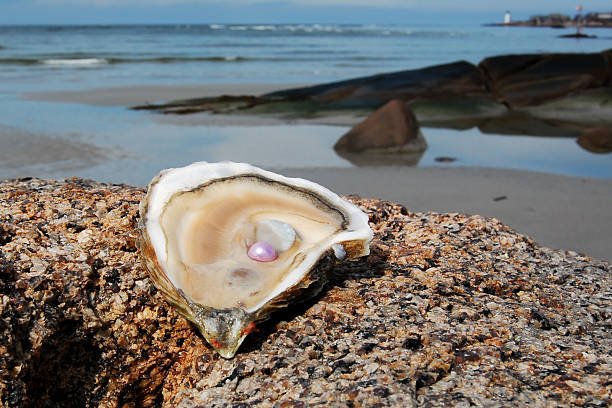Riley Mayes
Riley Mayes is a full-time student and worker living in Portland, Maine. When she is not working through the heaps of books on her bedside table, you’ll find her out in the woods or exploring tidepools. Her work has been featured in several publications, including Beyond Words International Literary Magazine, Bryant Literary Review, and Garfield Lake Review.
On the Origins of Life
the first thoughts of life came
from an oyster shell, pearly and glinting,
twelve inches under the sea,
rolling in the interminable pulse of the ocean,
a singular shaft of afternoon light falling
in a diamond on a slate of beachrock.
i know this, peering in a tidepool
on the balls of my feet, squinting in the sun,
the shy blues and greens making pale the arms of algae.
a life, in microcosm.
the bits left behind as the tide ran out,
like children left on doorsteps,
bundled in lichens and trembling,
burn bright in the sun,
but sing sweetly underwater.
how could they not, needing somewhere to begin,
ignore the breathing in the mossy waters of a
tidepool in New England?
why not the bulbous heads of barnacles, the brain?
and the strands of seaweed, slick with salt, the nerves?
think: a singular bed of shale holds the clinging rings
of barnacles, small skeletons, urchins,
the algae, the sand and sediment.
mussels cluster like thick sculptures.
crabs scuttle with a sideways shimmy.
yes, this is where the first thoughts of life
come from, the mouth of an oyster
twelves inches under the sea.
Cutler Coast
At first, everything is more familiar than it seems.
I stood out in the half-dark, dipping my eyes over
the blue moss, one body and the distant pull of the ocean.
Every breath of night wings are ones I have heard before, alone.
This is the first day I have not been lost.
Instead of self I find maystars in the grass, parched in drought soil,
turning me eastward. Stem slender, flowers few, but
stronger than my back or any part of me.
I don’t know why, but I feel more mist than muscle and my body
floats in the sea water. I lie barefoot under the rocks
and shiver and wonder where every strange thing has gone.
Like I am outside my house, and someone will call
me inside. Whatever you do, do not think of your mother.
Instead of poetry I am writing waste and all I can see
are gulls picking at coils of plastic washed up.
I was embarrassed. I thought about all the balloons I lost over the years—
wishes torn dry, withered in the real world.
But it is here, in the memories of moss
and the wilderness that I feel closest to the past,
standing behind me at the kitchen sink, kissing my neck.
I came here to be alone, I think—but myself is so much
it is a thousand voices talking all at once.

